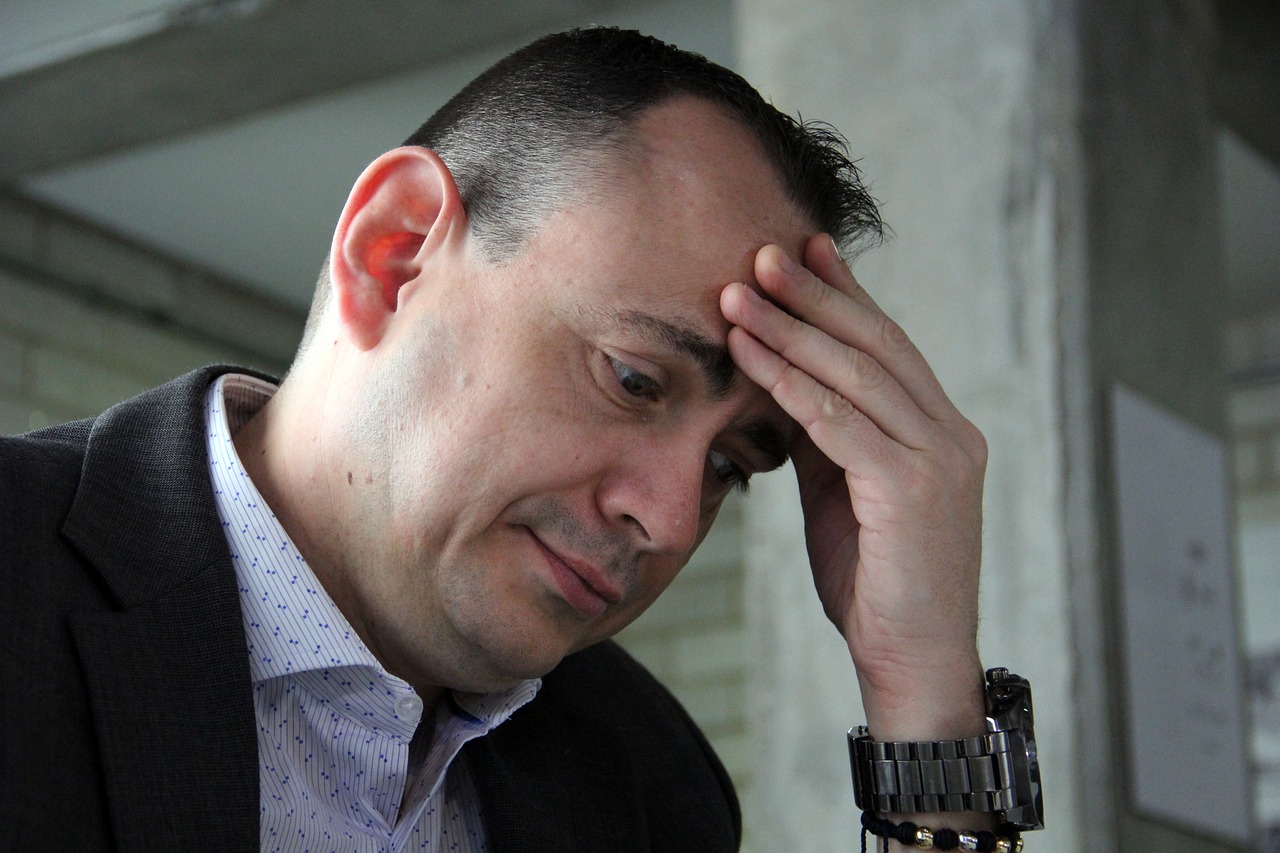The Real Impact of Stress on Your Body (and Why You Can’t Just “Relax”)

everyone says it — “just stop stressing so much.” sounds nice in theory, but let’s be honest — if it was that easy, half the world wouldn’t be surviving on caffeine, headaches, and overthinking. truth is, stress isn’t something you can just switch off. it’s not a mood; it’s a biological response that involves your brain, your hormones, and almost every organ inside you.
it’s your body’s emergency mode. the only problem is — for most people today, that mode never really switches off.
you wake up to notifications, rush through traffic, deal with work pressure, money stress, family issues — and then try to sleep while your brain keeps replaying the entire day like a broken record. that’s not just “being stressed out.” that’s your nervous system being stuck in a loop it was never built for.
what stress actually is (and why it’s not “all in your head”)
let’s break it down properly. stress is basically your body reacting to pressure — physical, mental, or emotional. when your brain senses danger (even imaginary danger like “my boss might shout at me”), it signals your adrenal glands to release adrenaline and cortisol.
adrenaline kicks in instantly — your heart rate shoots up, breathing gets faster, muscles tense. that’s your “fight or flight” gear.
then cortisol follows — it keeps your body alert by raising blood sugar and slowing down functions that aren’t “essential for survival” at that moment (like digestion, immunity, even reproduction).
in a real emergency — like running from a wild dog — this is lifesaving. but when your “emergency” is a never-ending cycle of traffic, workload, and emotional burnout, your body ends up living in survival mode for months or even years. and that’s where the damage starts.

how stress slowly messes up your system
1. your heart & blood pressure
under chronic stress, your heart works overtime. cortisol and adrenaline make your blood vessels tighten, which means your blood pressure rises. do it long enough and your arteries start stiffening. that’s one big reason people under constant stress are more likely to develop hypertension, arrhythmia, and even heart disease later on.
2. your brain & memory
high cortisol damages the hippocampus — the part of your brain responsible for learning and memory. that’s why stressed people forget things, struggle to focus, or feel mentally foggy. even your emotional control weakens because stress affects the prefrontal cortex — the rational part of your brain — making you more reactive, moody, and anxious.
3. your gut
ever had your stomach twist before a big exam or meeting? that’s your gut reacting to stress hormones. chronic stress changes gut bacteria and affects how your intestines contract. it leads to acid reflux, bloating, constipation, or diarrhea. even conditions like IBS (irritable bowel syndrome) can worsen under long-term stress.
4. your hormones
stress doesn’t just make you tired — it messes up your hormone rhythm completely. for women, it can delay or stop menstrual cycles. for men, it lowers testosterone and libido. basically, your body goes: “we’re in danger — now’s not the time to think about reproduction or pleasure.”
5. your immunity
chronic stress suppresses your immune response. you start catching colds more easily, wounds heal slower, and inflammation levels rise in your body. that inflammation quietly builds up and later shows up as arthritis, diabetes, or even autoimmune problems.
the invisible part: mental burnout
the physical damage is one thing — but the mental side hits even harder. burnout doesn’t come suddenly. it’s slow. first, you’re just tired all the time. then you stop caring about stuff that used to excite you. then you can’t sleep right, you overthink, your motivation dips, and before you know it, everything feels pointless.
it’s that quiet exhaustion where you can’t tell if you’re tired or just done.
and it’s not just from work — it can come from emotional stress, toxic relationships, social pressure, or constantly pretending to be “okay.” your brain never shuts off. you’re awake, but you’re drained.
what happens when you ignore it
this part’s rough — most people just keep pushing through it. they think, “I’ll rest later.” but ignoring stress doesn’t make it disappear; it just buries deeper.
you might notice small things first — headaches, poor sleep, low energy, digestive issues. then it turns into chronic problems: high blood pressure, weight gain around your belly, sugar spikes, hair loss, or panic attacks out of nowhere.
doctors are now calling stress a “silent trigger” — because it doesn’t look deadly at first, but it quietly sets off other diseases behind the scenes.
the science of calming down (and it’s not just meditation talk)
people think “relaxation” means spa days or vacations. but medically, relaxing means activating your parasympathetic nervous system — that’s your body’s natural “rest and digest” mode. when it’s active, your heart rate slows, cortisol drops, digestion improves, and your brain clears up.
some proven ways to do that —
-
controlled breathing
slow breathing tricks your brain into thinking you’re safe. deep inhale, long exhale. repeat it for 3 minutes — you’ll literally lower your cortisol levels. sounds too simple, but it works because your breath directly connects to your nervous system. -
physical movement
you don’t need gym sessions or heavy training. just move. walk, stretch, dance, do yoga — whatever gets your body out of “freeze mode.” movement tells your body, “the threat is gone.” -
sleep hygiene
no screens an hour before bed, no caffeine after evening, and try to sleep at the same time daily. cortisol drops while you sleep — but only if your sleep is deep enough. scrolling TikTok before bed kills that cycle. -
say no (without guilt)
you can’t fix stress if you keep saying yes to every extra task, every hangout, every favor that drains you. protecting your peace is a form of health care. -
talking helps
bottling emotions keeps the stress loop alive. whether it’s a therapist, a friend, or journaling — just getting it out rewires your brain from panic mode to processing mode.
what doctors are realizing now
for decades, medicine treated stress like a side effect — something that comes “along with” disease. but now, science shows stress is often the root cause.
hospitals now use biofeedback therapy, where patients learn to control their heart rate and breathing in real time using sensors. even chronic pain clinics use stress-reduction as part of treatment. it’s no longer seen as “mental fluff” — it’s hard science now.
research shows long-term stress affects gene expression — meaning it can literally switch certain genes on or off that control inflammation, metabolism, and immunity. so when you manage stress, you’re not just feeling better — you’re changing how your body functions on a cellular level.
real-life examples you can relate to
think about how people get migraines before big events, or stomach ulcers during exam season. think about how some develop eczema flare-ups or acne breakouts during emotional distress. that’s not coincidence — that’s your body talking back.
or look at healthcare workers — they face emotional exhaustion daily. burnout among nurses and doctors isn’t just about long hours; it’s the mix of pressure, loss, and empathy fatigue. that same process happens to anyone juggling too much for too long.
the takeaway
you can’t avoid stress — nobody can. it’s part of being human. but the goal isn’t to live a stress-free life (that’s impossible). the goal is to recover faster from stress so it doesn’t hijack your health.
that means listening to your body early. when you’re snappy, tired, or can’t focus — that’s your system asking for a reset. ignoring it and pushing through doesn’t make you stronger — it just makes you break slower.
so next time someone tells you “just relax,” maybe don’t roll your eyes — but also, don’t settle for that surface advice. stress isn’t about “thinking positive”; it’s about balance. about learning when to go full throttle, and when to pause and breathe.
the human body is amazing at healing — it just needs you to stop fighting it all the time.